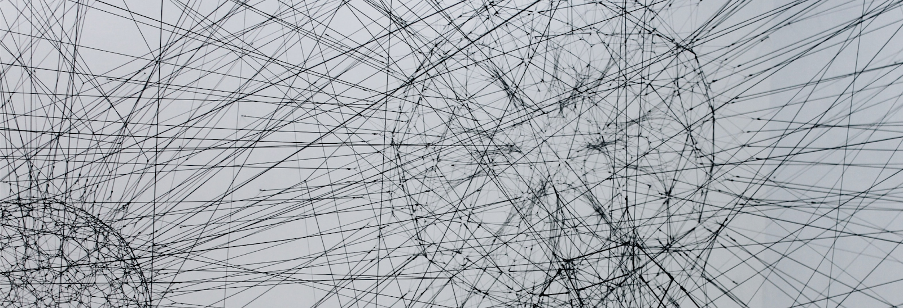On 25 September 2025, CORE was invited by the UK Council of Open Research and Repositories (UKCORR) to present a webinar for their members, titled “From Principles to Practice: Making Repository Content Discoverable with the CORE Data Provider’s Guide.” The session focused on one of the most pressing challenges for repository managers, namely ensuring that their content is not just indexed but is also visible, accessible, and interoperable across the global scholarly ecosystem. The webinar introduced the CORE Data Provider’s Guide, a structured, three-layered framework covering best-practice in three distinct areas; repository configuration, metadata configuration, and full-text configuration.
Category: Events
CORE presents SoFAIR project at UNESCO
Last week saw CORE founder Professor Petr Knoth at UNESCO in Paris for the 2025 Software Heritage Symposium and summit. Professor Knoth was presenting the work undertaken in the first year of the SoFAIR project, a two-year multinational CHIST-ERA project. The Open University is working in conjunction with multiple partners including INRIA, Brno University of Technology, the Polish Academy of Sciences and Europe PMC. SoFAIR will improve and semi-automate the process for identifying, describing, registering and archiving research software, ensuring it has received a Software Heritage persistent identifier.
CORE Board of Supporters Meeting
This week saw the latest CORE Board of Supporters Meeting take place online. We had 28 attendees from our member institutions and, for the first time, we were also joined by institutions that are working with CORE as a part of the URSN pilot project, funded by SPARC.
The Board of Supporters is an integral component of the CORE governance structure and exists as part of our role as signatories to The Principles of Open Scholarly Infrastructures (POSI).
Figure 1: The CORE governance structure
Professor Petr Knoth hosted the meeting and first introduced a round up of the work that CORE has been doing in the last six months, covering some of the new tools that CORE has released for members including the Rights Retention module, new indexing request capabilities, better email alert tracking and the ability to categorise a repository’s content into ‘sets’ allowing for better management of your content.
AI for the Research Ecosystem workshop – #AI4RE
On March 22, 2024, the AI for the Research Ecosystem workshop (#AI4RE) took place in London, kindly hosted by UCL in the wonderful surroundings of Chandler House. The workshop was part of the Turing Institue’s AI UK Fringe series of events which took place around the U.K. The workshop focused on the intersection of the recent developments in Artificial Intelligence, such as Large Language Models and Deep Learning, and how these developments will impact current research practices.
The packed programme opened with a keynote by Prof. David De Roure of the University of Oxford, exploring knowledge infrastructures, social machines and how, and if, we can measure the rate of innovation – and whether it is increasing.
CORE Board of Supporters Meeting round up
This week saw the 2nd bi-annual CORE Board of Supporters Meeting take place online. The meeting was well attended and we are extremely pleased that 24 participants from 15 member institutions joined us. The Board of Supporters is an integral component of the CORE governance structure and exists as part of our role as signatories to The Principles of Open Scholarly Infrastructures (POSI).
Figure 1: The CORE governance structure
Covered in the meeting were many of the latest developments that CORE has been working on including the conversion of PDF documents to structured text to allow for machine-readability, detecting duplicates and different versions of scholarly documents within repositories., we’re extremely grateful to Kirsten Vallee from The University of Chicago who spoke about her repository’s experience using the CORE Dashboard deduplication module.
AI for the Research Ecosystem: a KMi workshop at the AI UK Fringe 2024

CORE is a part of The Knowledge Media Institute (KMi) here at The Open University. As part of the Turing Institute’s AI UK Fringe event series, Professor Petr Knoth and Dr David Pride from CORE are working together with Professor Enrico Motta and Dr Angelo Salatino from KMi and Dr Aldo Lipani from UCL to organise the “AI for the Research Ecosystem” (AI4RE) workshop which will highlight the rapid evolution of AI and its significant impact on the entire research process.
Technologies like deep learning and large language models are poised to transform various stages of research, including study design, literature reviews, code design, data collection and analysis, dissemination, peer review, and research assessment. The workshop aims to provide insights from expert speakers across the research spectrum, involving researchers, institutions, policymakers, funders, and commercial entities. The event serves as a catalyst for addressing fundamental questions about the implications of AI developments for the research community, emphasizing the need for responsible and ethical AI design and usage. Additionally, the workshop aims to explore how stakeholders can best organize and democratize these AI technologies for the benefit of the research ecosystem.
CORE presents at UKRI workshop on research article PIDs and their role in the UKRI OA policy
In November, there was a whole-day workshop held at the headquarters of United Kingdom Research and Innovation (UKRI) in London on the topic of article-level persistent identifiers (PIDs) in the context of the UKRI OA Policy. There were representatives from HEIs, UKRI, and scholarly services providers, including Crossref and Cosector (host repositories). Professor Petr Knoth, together with Dr George Macgregor from the University of Glasgow, gave a presentation on the use of article-level identifiers in repositories.
